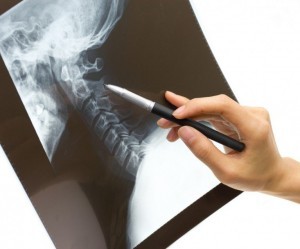 The team at Frisco Spine offers some of the most advanced care for neck and back paint in the state of Texas. We are committed to improving spinal health, whether that involves non-invasive, minimally invasive, or surgical back pain treatment, or various tips for pain management and prevention.
The team at Frisco Spine offers some of the most advanced care for neck and back paint in the state of Texas. We are committed to improving spinal health, whether that involves non-invasive, minimally invasive, or surgical back pain treatment, or various tips for pain management and prevention.
We’d like to take a moment to consider how we can help patients who suffer from rheumatoid arthritis that affects the spine.
About Rheumatoid Arthritis
Rheumatoid arthritis is an autoimmune disorder that causes chronic inflammation of the joints. Whereas osteoarthritis involves wear and tear on the joints, rheumatoid arthritis affects the joint lining. The condition can be very painful and result in the deformation of the joints and erosion of the bones in the joints.
Rheumatoid arthritis is most common in the joints of the hands and feet, though it can attack the spine as well. When rheumatoid arthritis affects the spine, it can lead to major issues with pain in the back and neck, and this pain can also radiate outwards to the limbs.
Symptoms of Rheumatoid Arthritis
Some symptoms and warning signs of rheumatoid arthritis to keep in mind include:
- Warm or swollen joints
- Stiffness of the joints that lasts for hours
- Bumps under the skin around the joints
- Fatigue
- Fever
- Loss of weight
Risk Factors of Rheumatoid Arthritis
Rheumatoid arthritis is more common in women than in men, and it’s also more common in people who are older than 40. In addition, genetic factors and family history of rheumatoid arthritis can make the condition more likely.
Medications Used to Treat Rheumatoid Arthritis
Many times doctors prescribe drugs to help treat rheumatoid arthritis and manage the pain associated with it. The most common medications include nonsteroidal anti-inflammatory drugs (NSAIDs), corticosteroids, and disease-modifying antirheumatic drugs (DMARDs).
Doctors will typically prescribe drugs with the fewest and most manageable side effects first, prescribing other kinds of medications if more conservative approaches with medication proved ineffective.
Physical Therapy and Exercise for Rheumatoid Arthritis
In addition to medications, physical therapy and different kinds of exercises tend to be helpful in restoring mobility to the back and perhaps even relieving some of the pain associated with rheumatoid arthritis. There are also slight behavior modifications that can reduce the amount of pain and stress placed on the back.
These exercises, behavior changes, and other matters will be discussed in detail with a physical therapist.
Assistive Devices to Aid Those with Rheumatoid Arthritis
Since joint pain can be extremely severe and result in major problems doing everyday activities, many people who suffer from rheumatoid arthritis are given assistive devices. These include various items around the home that are modified to accommodate the pain and limitations of people suffering from rheumatoid arthritis. For instance, buttonhooks can help people who have problems with their hands get dressed with relative ease.
Your doctor can go over the assistive devices you need for your issues in more detail during a visit. To the practice.
Surgical Treatments for Rheumatoid Arthritis
When less invasive therapies are ineffective at treating the pain and other problems related to rheumatoid arthritis, surgical treatments are most ideal. This may mean replacing the affected joint, fusing joints together, or even treating the tissues adjacent to the joint.
When rheumatoid arthritis affects your spine, careful surgical treatments will be considered that will protect the patient’s wellness and address the issues at hand.
Schedule a Consultation
For more information about your treatment options for rheumatoid arthritis and how it can be properly treated, it’s important that you contact our neck and back pain specialists today. The team at Frisco Spine will work closely with you to address your needs and help improve your overall wellness.
Recent Comments